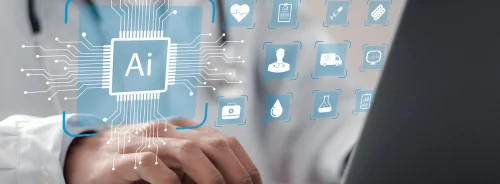HealthManagement, Volume 12 - Issue 1, 2012
An Accenture survey of more than 3,700 doctors across eight countries has found that healthcare IT is improving health practices and there is common agreement on the top benefits of technology across countries. But some physicians do not yet see all the benefits, especially those over 50 or those who are not actively using healthcare IT, such as electronic medical records (EMR) and health information exchanges (HIE).
The physician quantitative research -which is part of an Accenture Connected Health Study that will be published soon - surveyed 500 doctors per country in Australia, Canada, England, France, Germany, Spain and the United States and 200 doctors in Singapore between August and September 2011. The research measured physician attitudes toward "Connected Health," an approach to healthcare delivery that leverages the systematic application of healthcare IT to facilitate the accessing and sharing of information and the analysis of data across the healthcare system.
Global Findings
The majority of doctors in all of the countries surveyed believe that healthcare IT does provide some common top benefits, including better access to quality data for clinical research (70.9 percent reported positive benefits), improved coordination of care (69.1 percent) and a reduction in medical errors (66 percent). But some doctors do not yet see all the benefits of healthcare IT with high percentages reporting either a negative impact, no impact or didn’t know for reducing unneeded procedures (43.6 percent), improving access to services (43 percent), or improving patient outcomes (39.2 percent). Those physicians who are routine users of healthcare IT, however, rated the overall benefits more positively than their counterparts who are less actively involved with these technologies.
Findings From England
In England, the Accenture survey found:
- With an average score of 61 percent, physicians are just above the global average of 59 percent in their perception of the benefits of healthcare IT across the 10 areas surveyed.
- The majority of English doctors (71.4 percent) believe that connected care will result in better access to quality data for clinical research. The next top two benefits were improved coordination of care across settings/service boundaries (67.1 percent) and reduction in medical errors (64.9 percent).
- Just over half of physicians believe that healthcare IT will result in increased speed of access to health services to patients (55.3 percent) and will reduce the number of unnecessary interventions and procedures (52 percent).
- Less than half of the English physicians surveyed believe that healthcare IT will result in reduced risk of litigation (44 percent).
Jim Burke, Managing Director, Accenture UK Health Industry said, “It is encouraging to see that the physicians surveyed are recognising the benefits associated with integration of currently siloed patient data across care settings and that this is enabling better clinical research and integrated care pathways. As this trend grows and these connected health solutions are established and expanded, patients will benefit and the recently announced government initiative to make increased use of healthcare data for clinical research will become a reality.”
Country Comparisons
The survey also revealed that doctors across the eight countries have somewhat similar perceptions about the top benefits of healthcare IT. However, doctors in Singapore and Spain perceive a more positive impact compared to their counterparts in the United States, Canada and Australia.
Age Divide
There was a statistically significant contrast in attitudes among doctors over and under 50 years of age. The Accenture study found that doctors under 50 are more likely to believe that healthcare IT has a positive impact across a wide range of perceived benefits, including improved health outcomes for patients, increased speed of access to health services and reductions in medical errors. More than 72 percent of doctors under 50 think EMR and HIE will improve care coordination across settings and service boundaries. And, 73 percent believe these technologies will offer better access to quality data for clinical research. These numbers vary, however, for doctors over 50 - only 65 percent and 68 percent respectively perceive the same benefits.
Routine Users of Healthcare IT
The Accenture study also asked physicians about the extent to which they used 12 different “functions” of EMR and HIE - such as electronic entry of patient notes, electronic referrals to or from other physicians, electronic ordering, electronic prescribing and communicating with other physicians or patients via secure email. The results showed that physicians who are routine users of a wider range of healthcare IT functions have a more positive attitude toward the benefits these technologies bring. The survey shows that, on average across all the countries, as physicians start to use more “functions” - the more positive they are about the benefits. Comparison of use and perceived benefits of healthcare IT As the number of routinely used healthcare IT functions increases, doctors’ overall perception of the benefits grows more positive. Jim Burke added: “The survey confirms what we are increasingly seeing across the country. As physicians’ familiarity with sophisticated IT grows, both within and outside their workplace, the greater their expectation that modern technology is needed to bring our healthcare systems and processes into the 21st century.”





